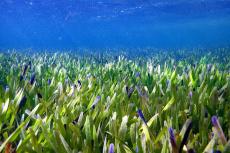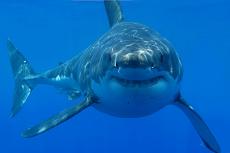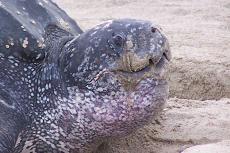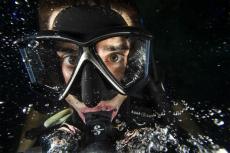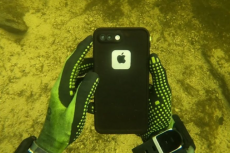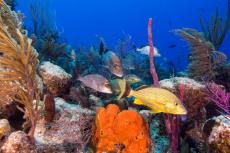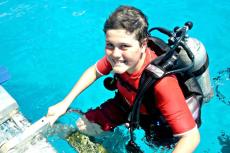Octopuses and Fish: A Surprising Partnership
New research reveals surprising cooperation between octopuses and fish, with unexpected aggression when the hunt slows down.
Octopuses are typically known as solitary hunters, relying on their stealth and intelligence to track down prey. However, new research published in Nature Ecology & Evolution reveals that some octopuses form unusual hunting alliances with fish. These multispecies teams collaborate in their search for food, with each animal contributing different skills to the hunt.
But there's a twist. If an octopus feels the hunt is progressing too slowly, it may use its tentacles to “punch” a fish. This is the first time such behaviour has been observed.
Complex Collaboration Unveiled
Octopuses are already renowned for their intelligence and problem-solving abilities, and this study suggests their capabilities extend to working with other species. Eduardo Sampaio, a postdoctoral researcher at the Max Planck Institute of Animal Behaviour, led the research, which followed 13 octopus-fish hunting groups off the coasts of Australia, Egypt, and Israel.
The octopuses, mainly the big blue octopus (Octopus cyanea), teamed up with various fish species, including goatfish, blacktip grouper, and lyretails. Using 3D mapping technology, the researchers tracked these groups’ movements over 3.5 hours of footage, uncovering how they coordinated their hunting tactics.

One key finding was that goatfish often scouted out hunting areas ahead of time, using their heightened senses to help the group. The octopus would then decide when and where to begin foraging, with some hunts lasting as long as 90 minutes and covering up to 50 meters.
The Punch: Motivation or Aggression?
A striking aspect of the study was the discovery that octopuses sometimes “punched” fish during the hunt. This behaviour seemed to occur when the hunt stalled, and was especially directed at blacktip groupers, which prefer to wait for prey rather than actively hunt. The octopus punch, which researchers believe is meant to get the group moving again, adds a new layer to the understanding of octopus behaviour.
Sampaio's team also observed that these hunting collaborations benefited the octopuses. For instance, when hunting with goatfish, octopuses performed more successful web-overs—where they envelop corals or rocks to extract prey—compared to when they hunted alone. This suggests that the goatfish may help octopuses identify better hunting spots, conserving energy while increasing their success.
Scepticism in the Scientific Community
While the study's findings are intriguing, some researchers remain cautious. Jennifer Mather, a psychologist specializing in animal behaviour at the University of Lethbridge, questions whether this truly qualifies as collaboration. “Cooperation should involve planning and communication,” she says, arguing that the study does not yet provide solid evidence of these elements.
Sampaio acknowledges the challenges of studying cross-species communication in the wild but believes the prolonged interactions between octopuses and fish indicate something more than mere chance. He is also investigating whether octopuses might communicate with fish by changing colour, which could provide further insights.
A New Horizon for Animal Behaviour Research
Despite the scepticism, the study is breaking new ground in understanding animal behaviour. Trevor Wardill, a neuroethologist from the University of Minnesota Twin Cities, notes that examples of animals collaborating across species already exist, such as groupers hunting with moray eels and badgers teaming up with coyotes.
As researchers continue to examine the complex dynamics of these multi-species hunts, the punch-happy octopus could become a symbol of the unexpected ways nature’s creatures work together—even if the teamwork occasionally involves a little aggression.


















